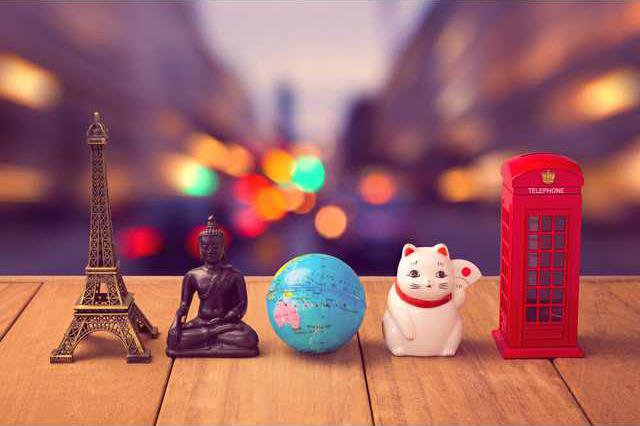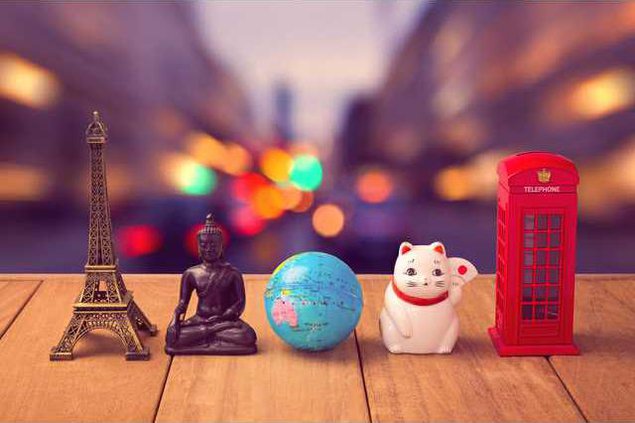Between standard summer travel and the upcoming Olympics, there are plenty of opportunities available for consumers to buy a souvenir. But is it something you really need? Should you control or perhaps even eliminate your souvenir spending?
Its nice to have something to remember your trip by. There may even be quite the story attached.
Bram Reusen, for example, wrote for La Paz that while I would never ever spend money on obviously kitschy objects in my day-to-day life, he loves buying souvenirs. One of his stated favorites is a piece of patterned fabric, hand painted by an Australian aboriginal women, on his first solo trip backpacking around the continent.
Despite the story or memory attached to a souvenir, keep in mind that the item is marked up by more than 50 to 60 percent higher than it's true value and its something you wont get much practical use out of, as wisebread.com noted.
Weighing the limited luggage space against the cost of souvenirs (and what that money could have been spent on instead), one contributor to whereverwriter.com said shes given up on buying souvenirs.
When I went on my trip to Italy, Greece and Spain, I spent about $100 just on souvenirs, wrote Amy (no last name given) for whereverwriter.com. Thats insane. Those $100 could have been spent on a memorable experience in Europe, but instead, they were spent on overpriced souvenirs.
Ultimately, the worth of a souvenir may come down to a simple equation of its future sentimental value versus what a traveler is willing to pay, saverocity.com noted.
Having some token to remember this trip by might be worth more than the money itd cost to purchase it, it noted.
If souvenirs are for you, here are a couple of tricks you can use to save money.
The Christian Post suggested drawing up a list before setting out that would address:
Or you could get creative with what you consider a souvenir for yourself. For example, a journal to chronicle your experiences can count as a souvenir if you keep a detailed account of what you see and do, globe-trottica.com advised. Shells you pick up on a beach, postcards, stickers, street maps, newspapers, foreign coins and plane tickets could all count as mementos of your travels.
Its nice to have something to remember your trip by. There may even be quite the story attached.
Bram Reusen, for example, wrote for La Paz that while I would never ever spend money on obviously kitschy objects in my day-to-day life, he loves buying souvenirs. One of his stated favorites is a piece of patterned fabric, hand painted by an Australian aboriginal women, on his first solo trip backpacking around the continent.
Despite the story or memory attached to a souvenir, keep in mind that the item is marked up by more than 50 to 60 percent higher than it's true value and its something you wont get much practical use out of, as wisebread.com noted.
Weighing the limited luggage space against the cost of souvenirs (and what that money could have been spent on instead), one contributor to whereverwriter.com said shes given up on buying souvenirs.
When I went on my trip to Italy, Greece and Spain, I spent about $100 just on souvenirs, wrote Amy (no last name given) for whereverwriter.com. Thats insane. Those $100 could have been spent on a memorable experience in Europe, but instead, they were spent on overpriced souvenirs.
Ultimately, the worth of a souvenir may come down to a simple equation of its future sentimental value versus what a traveler is willing to pay, saverocity.com noted.
Having some token to remember this trip by might be worth more than the money itd cost to purchase it, it noted.
If souvenirs are for you, here are a couple of tricks you can use to save money.
The Christian Post suggested drawing up a list before setting out that would address:
- To whom will you give a souvenir.
- What kind of item that loved one would like (as opposed to something purchased in haste at the airport that they quickly forget about)
- What youll specifically budget for souvenirs
Or you could get creative with what you consider a souvenir for yourself. For example, a journal to chronicle your experiences can count as a souvenir if you keep a detailed account of what you see and do, globe-trottica.com advised. Shells you pick up on a beach, postcards, stickers, street maps, newspapers, foreign coins and plane tickets could all count as mementos of your travels.





